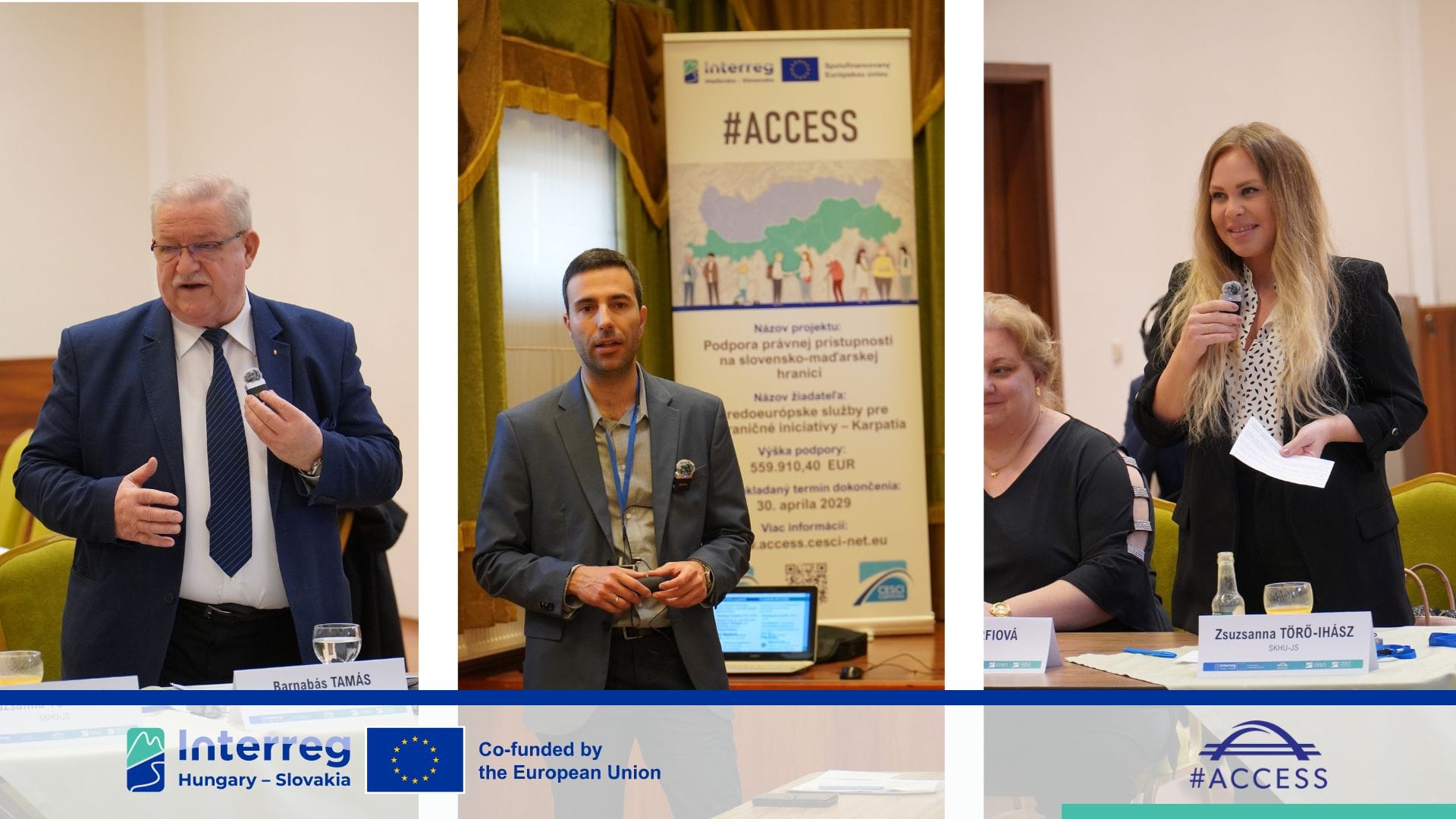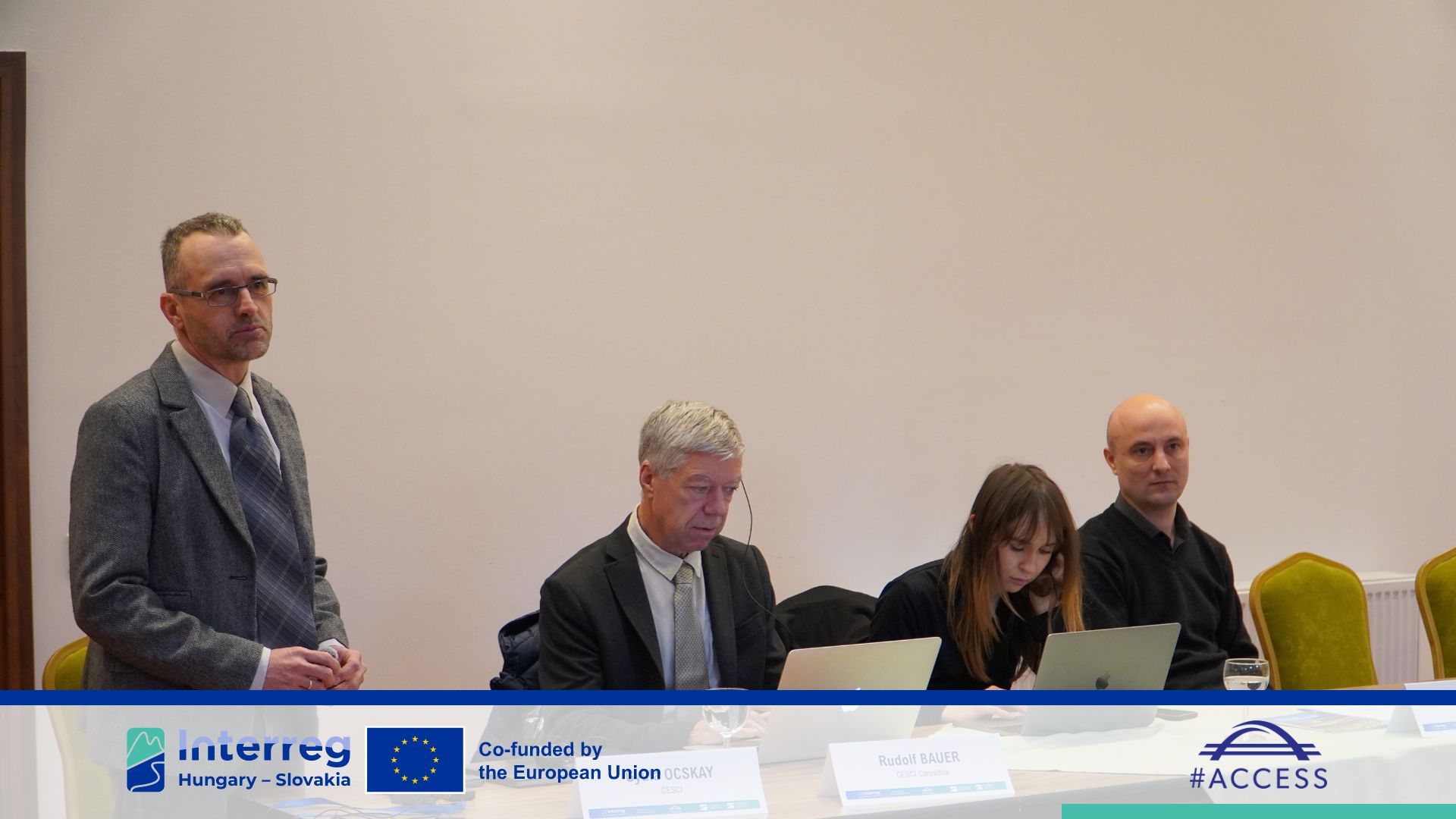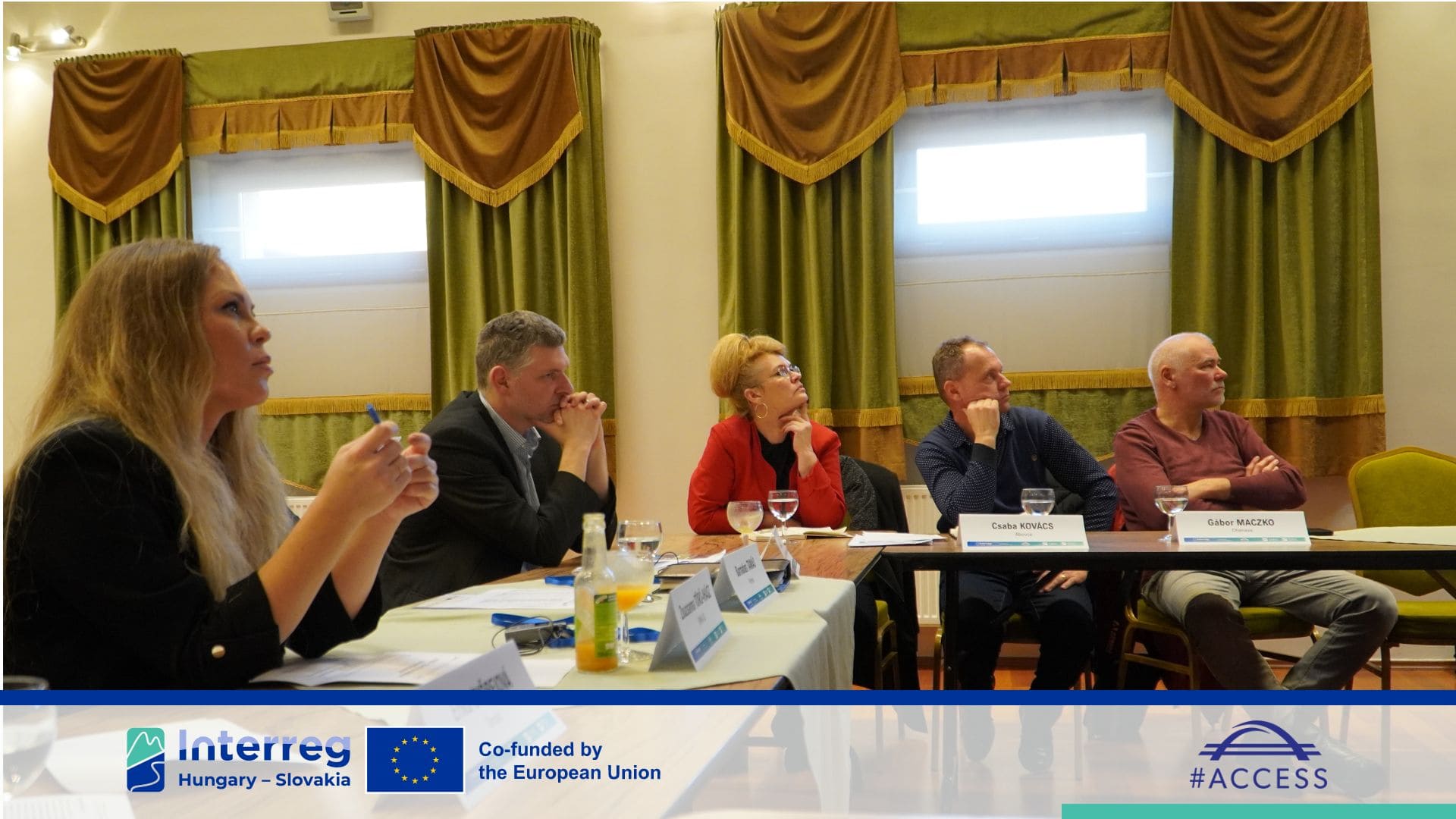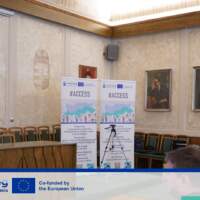The session started with welcoming speeches by Putnok’s Mayor, Barnabás Tamás, who highlighted the historical significance of the town and called for collaboration across municipalities for regional advancement. Zsuzsanna Ihász-Törő from the Ministry of Foreign Affairs and Trade and Dávid Bán from the Ministry of Public Administration and Territorial Development both emphasised the strategic importance of projects like ACCESS in overcoming legal and administrative barriers to cross-border cooperation.
The workshop underscored Putnok’s strong commitment to cross-border cooperation, willing to take a leading role. The forthcoming 23rd Gömör EXPO, an event blending economic, sports, and cultural activities, was cited as evidence of the capacity and willingness to enhance cross-border cooperation.
The discussion spotlighted to the existing labour and student mobility from Slovakia to Hungary, particularly the employment attracting power of the Bosch plant in Miskolc and the cross-border educational opportunities generated by the closure of the Hungarian-language secondary school in Tornaľa. The participants identified the inauguration of bilingual education on the Hungarian side as a solution.
The workshop also explored the possibility of developing sports education cooperation, with proposals for ski training in Rimakokova for Hungarian students and horseback riding in Jósvafő for Slovak students. Furthermore, challenges such as the absence of community transportation and the need for effective student transport arrangements were also discussed.












